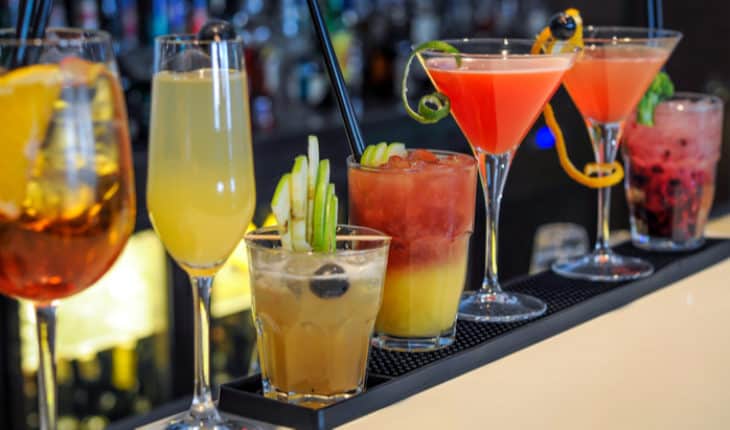With drinking habits changed for thousands of people under lockdown, there are warnings of more excessive alcohol consumption when pubs reopen on July 4
- Regular sustained alcohol consumption at home could now be joined by ‘binge drinking’
- A Priory expert says habits entrenched during the height of the pandemic, and its aftermath, mean it “is a time when alcohol can take over”
- For men and women, psychological distress and challenges from stress and economic uncertainty have correlated with increases in their drinking – but alcohol is a depressant, says psychotherapist Pamela Roberts
- ‘Blaming’ rather than helping a partner whose alcohol consumption raises concerns is a ‘highway to nowhere.’
As Pubs in England opened this week (July 4), and the summer weather continues, a Priory expert has urged people to reassess their relationship with alcohol so they are not regularly exceeding daily intake guidelines, or binge drinking, and putting their health at risk.
Her comments come after the National Chair of the Police Federation warned that pubs opening could be “a countdown to party time”, and that the problems associated with heavy drinking could put even more pressure on police officers and the NHS.
Lockdown has changed the drinking patterns of millions for whom regular, sustained alcohol consumption is now the norm.
A recent poll of workers by the charity Drinkaware found that 36 per cent of furloughed workers have increased their alcohol consumption – a trend dubbed by the media as ‘furlough Merlot’ – since the restrictions began, compared to a nationwide average of 24 per cent.
The Opinium survey found that nearly one in five (18%) of daily drinkers had increased the amount they drink.
With the job retention scheme recently extended until October, there are fears that thousands of workers could emerge from lockdown with “risky or even dangerous” drinking habits.
An addiction’s expert from The Priory cautioned that periods like the pandemic, involving collective pressures and enormous anxieties, especially where they are health or wealth-related, can be triggers for dangerous drinking patterns to emerge.
Pamela Roberts, addiction therapy manager at Priory’s Woking Hospital in Surrey, said; “This period is challenging for many families, and if someone has a tendency to sooth their stresses and challenges with alcohol, this is a time when alcohol can take over.”
Multiple stress factors included “unexpected bereavement, relationships under strain, and financial and job pressures.
“All this can sound like reasonable justification to use alcohol – but of course alcohol is a depressant. So this is a potentially toxic recipe for anyone tipping the balance into unhealthy drinking.”
Pamela Roberts said there are many commons signs to look out for which show that a person’s alcohol intake might be becoming problematic: “For example, when you put in rules that begin to slip, for example if the intention was to have one glass which creeps up to 2 or 3 glasses and then even having a bottle, or six o’clock becomes five o’clock. There’ll always be a good excuse to drink alcohol if you want one.”
She added; “If you’re starting to put in rules and conditions about your alcohol consumption, that in itself is a warning sign that something is going on. Also when you start to justify it all to yourself by saying ‘well that was a bad day’, or ‘it’s getting close to the weekend’.
“These warning signs don’t necessarily mean an addictive dependency is developing, but it does mean the risk is creeping up.”
Pamela Roberts also had advice for people who were concerned about the drinking habits of someone they live with. She said: “If you’re concerned, be factual, because you cannot control someone else’s decision to drink. You can say however, what you see and how you feel, rather than ‘you need to stop that because it’s causing me to do this’. As soon as it becomes blame, threatening, manipulation, you’re on a highway to nowhere.”
Binge drinking is defined as drinking more than 6 units in a single session for women or 8 units for men.
To keep health risks from alcohol to a low level if you drink most weeks:
- men and women are advised not to drink more than 14 units a week on a regular basis
- spread your drinking over 3 or more days if you regularly drink as much as 14 units a week
- if you want to cut down, have several drink-free days each week
Fourteen units is equivalent to 6 pints of 4% beer or 6 glasses (175ml) of 13% wine.
- Gut microbiome could delay onset of type 1 diabetes - 3rd April 2025
- The da Vinci 5 Robot Is Set To Transform Bariatric Care: - 31st March 2025
- Beyond money: the hidden drivers fuelling child food insecurity - 31st March 2025






